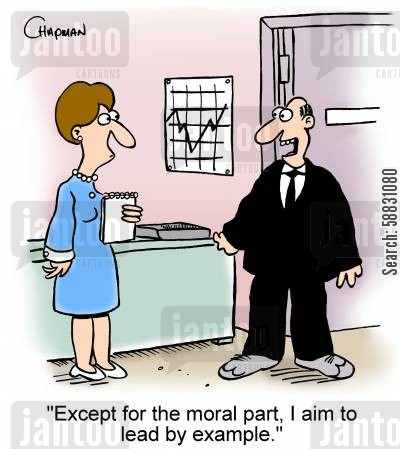I don’t really understand a lot of legal concepts, but I did think it was funny when the Supreme Court seemed to rule a few years ago that corporations were essentially people (at least in terms of giving money, I believe). The schism between “a corporation” and “a human being” — at least in my mind — is about 39 trillion Grand Canyons wide. And indeed, that’s starting to be backed up by research.
Here’s a study from a Stanford professor and a future UVA professor. (I’ve actually quoted the Stanford professor before, as well.) Here’s the bouncing ball on their study:
- Reciprocity (repaying one kindness with another) is an universal component of the moral code that governs human behavior.
- With person-to-person interaction, you see this often (hence the “universal component” idea above).
- With corporation-to-person interaction, you see it much less.
- But it would seem advantageous for a company to show kindness to its people, right? Because then they’ll stay and work harder and you won’t have to re-train and re-learn and all that?
- So why is this?
Here’s the rub:
“People operating in organizations generally have a business mind-set, which is more calculative and oriented toward the foreseeable future. They tend to make decisions that maximize the benefits to them personally while minimizing the cost,”says Pfeffer. In deciding whether to reciprocate workplace favors, study participants tended to be more strategic and calculating about whom they would help, basing that on how instrumental the favor-doer would be to them in the future.
Makes sense. People look out for No. 1.
But check this out. There’s a stark contrast:
In contrast, the studies show that when people receive a personal favor, their motivation to reciprocate has nothing to do with the future usefulness of others. In their personal lives, participants were actually more inclined to return a favor from those who were unlikely to do much for them in the future. “If you do a favor for me, as one human being to another I feel a normative obligation to repay the favor, even if you aren’t going to be very useful to me in the future,”says Pfeffer. “But we found almost the exact opposite in an organizational context. There, it’s all about calculations. If we don’t feel repaying the favor will benefit us much in the future, we won’t do it.”
So at work, it’s all about what-you-can-do-for-me (or what-have-you-done-for-me-lately). In personal context, it’s different. Hence, there’s basically no overlap between our actual day-to-day world with family, friends, and acquaintances and our 9-to-5 (or 8-to-7) existence. That’s awkward, right? We probably all know this, but still … there’s no real compassion or, well, broader social and moral norms in a workplace.
Small example on my own end: for most of the last seven or so years, I’ve worked on websites for different companies, mostly on the content side. Websites can be a huge money-maker, but for the senior people, they often get trumped by other, more immediate revenue concerns. I’ve always felt like if I did everything right and paid back favors, I got next to nothing in return. (At ESPN, people always used to cancel my meetings or show up late asking “What’s this about?” It was fucking annoying.) Reading this study gives a little bit of context here: people look out for themselves, their rewards, their money, etc. That’s how work works.
Sadly that does happen in your personal life too — relationships are essentially transactions — but thankfully it happens less there than in the workplace.

Thanks for re-posting this, I must’ve missed it. It seems that workers are simply mirroring the behavior they see from those higher up the corporate ladder. The assholes making the big bucks seem to cherry pick who and what issues they respond to, so that’s apparently the way to get ahead. If you look at a typical “org” chart, it easily resembles a pyramid, with lines of authority branching outward. The shit flows down and the profits flow up, heh.
There’s a stage beyond reciprocation where I do a service for someone because that’s my purpose: to enrich in some way the other person, a collective, or society—as a way of living my world-serving purpose. I know this doesn’t chime with your experience of business enterprises, but I won’t be swayed from holding it as a possibility.
I’m glad that stuff exists out in the world, though 🙂